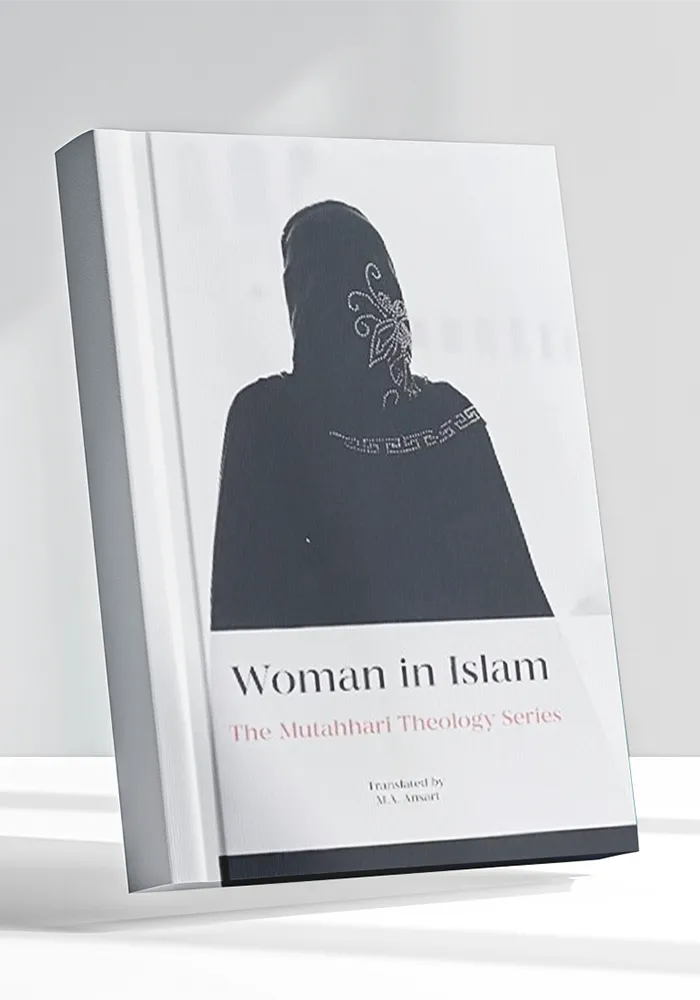Woman in Islam
Woman in Islam
by Shahīd Murtada Mutahhari
Woman in Islam by Shahīd Murtada Mutahhari stands as one of the most significant and intellectually rigorous explorations of the subject within modern Islamic thought. Originally a collection of lectures delivered by the esteemed scholar, the text systematically addresses the philosophical, legal, and ethical dimensions of the status and role of women in Islam, particularly through the lens of the Shi‘i intellectual tradition.
Mutahhari approaches this sensitive and oft-contested topic with both scholarly precision and pastoral concern. Rather than engaging in abstract apologetics or uncritical adoption of modern feminist discourses, he roots his analysis firmly in Qur’anic exegesis, Hadith literature, and the rational methodologies of Islamic jurisprudence (fiqh), whilst also engaging thoughtfully with contemporary questions about gender justice and social roles.
The treatise methodically dismantles common misconceptions about Islam’s view of women, both from orientalist critiques and from within certain reductive Muslim readings. He challenges the false dichotomy often presented between Islam and modern conceptions of gender equity, arguing that Islam affords women dignity, rights, and responsibilities that are divinely sanctioned and inherently balanced. Particularly commendable is his treatment of issues such as marital rights and responsibilities, inheritance, leadership, and the philosophy of modesty, where he upholds traditional Islamic principles while offering clarifications that resonate with modern sensibilities.
What distinguishes Mutahhari’s work is his intellectual honesty. He does not shy away from addressing contentious issues — such as polygamy or gender-specific legal injunctions — yet he does so by contextualising them within a broader ethical framework, demonstrating their underlying wisdom and social function. His arguments are not merely defensive but constructive, aiming to articulate a coherent vision of Islamic anthropology and the harmony between rights and duties in the divine schema.
Moreover, the book is accessible to a wide readership. While grounded in robust scholarly methodology, Mutahhari writes in a style that is both engaging and comprehensible for lay audiences, making it an essential text for students, community leaders, and anyone interested in the intersection of Islam and gender discourse. The translation maintains the spirit of the original Persian, capturing Mutahhari’s eloquence and rhetorical force, though familiarity with the original text undoubtedly offers deeper appreciation.
For the Shia Muslim community in particular, Woman in Islam offers more than an academic exploration; it is a reaffirmation of the dignified station of women within the divine order, as taught by the Qur’an and the Ahlulbayt (peace be upon them). Mutahhari’s work continues to serve as a vital resource for those seeking to navigate contemporary discussions on gender with intellectual integrity and fidelity to Islamic teachings.
Conclusion:
Woman in Islam is a profound and enduring contribution to Islamic thought. Shahīd Mutahhari masterfully bridges traditional Islamic jurisprudence with the modern quest for clarity on gender roles, offering a nuanced and holistic understanding. It is a highly recommended text for scholars, students, and thoughtful readers committed to deepening their comprehension of Islam’s perspective on women, beyond both polemics and superficial readings.
editor's pick
news via inbox
Subscribe to the newsletter.




